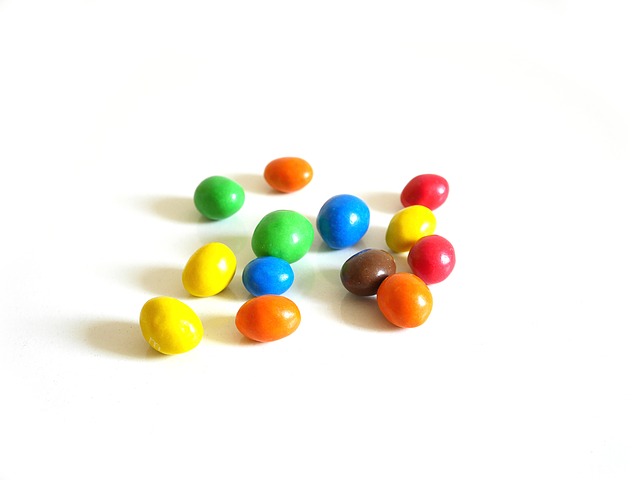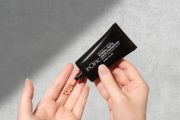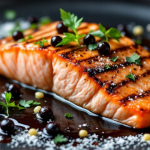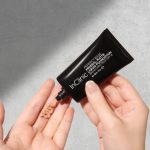Is ADHD Real or is it a Myth? Part 3

Is ADHD Real or is it a Myth? Part Three
Taken from ‘The ADHD Handbook: what every parent needs to know to get the best for their child’ by Stuart Passmore
This week psychologist Stuart Passmore addresses the suggestions that bad parenting and poor diet are the cause of ADHD in children. If you missed it you can catch up on Part One and Part Two first.
Myth: ADHD is a result of bad parenting
This myth has been circulating since the days of Noah and it is still a popular myth, and while it may not be true, in a way it makes sense. If you believe that ADHD is nothing more than a child misbehaving, the logical conclusion is to point the finger of blame at the parents. Obviously if the parents had just bothered to control their child and put some boundaries in place the kid wouldn’t be misbehaving. However, the fact is that parenting, whether good or bad does not cause ADHD. So parents out there believing that somehow, someway you are responsible for your child developing ADHD because of some failure in your parenting skills can relax. ADHD is NOT caused by poor parenting. ADHD is not a matter of parenting but a neurological disorder. However, and it is a big but, certain parenting practices are known to increase the frequency and the intensity of the presentation of certain ADHD symptoms. This is one of the reasons why parent management training is usually a very helpful tool for parents dealing with their ADHD child.
Myth: Diet causes ADHD
Before we begin looking at diet as a potential cause of ADHD, we need to understand that a child’s diet can have a negative impact on their behaviour. However, it is not typically in the sensationalist fashion that many might have us believe. There appears to be two separate issues at the core of the argument that have somehow merged into one big misunderstanding. It is true that children can have reactions to some foods or chemical sensitivities and it is these reactions that have been found to have a negative impact on the child’s behaviour. This does not however mean the food or the chemical has caused ADHD and again one has to be very careful the child is not inaccurately diagnosed as having ADHD by someone who really isn’t trained to do so.
That diet causes ADHD is a really popular myth and has many proponents that are very happy to argue that all a parent need do is change the child’s diet and their child will be cured of ADHD, or that there will be amazing changes to their behaviour. Just as an interesting exercise, Google the phrase ‘ADHD and diet’ and see just how many hits are listed – you will be surprised. Actually just on that one phrase alone there are 17,300,000 hits. Of course not all of those sites are suggesting that diet causes ADHD; there are those sites that refute the myth. However, the point being that ADHD and diet is currently a hot topic of debate for many people from all walks of life.
The argument of diet influencing a child’s behaviour can be dated back to the 1970s with the release of the popular Feingold diet. Dr Benjamin Feingold argued that food additives such as azo dye food colours and naturally occurring salicylates (salicylates are a compound found in some medications such as aspirin and is naturally occurring in some foods) and preservatives found in certain foods were fundamentally responsible for a child’s hyperactive behaviour. Feingold claimed that placing children on a strict diet would treat the disorder and without any documented evidence he also claimed he had around a 50 per cent success rate of hyperactive children that had been placed on the diet. And yes it is true there have been a handful of studies that reported improvement in a child’s behaviour following Feingold’s strict diet. However, it appears not all is at it seems. The improvements were noted in only a small number of children that appeared to have allergic reactions to certain food additives. According to decades of independent scientific studies there has been no support for Feingold’s claim. In fact, the results of systematic studies have shown what appears to be the exact opposite; that is, placing a child on a strict diet is ineffective and such a diet does not seem to alter the core symptoms of ADHD such as inattention, hyperactivity and impulsivity. Furthermore, it seems that the Feingold diet has regularly failed to receive any consistent scientific support since its inception. In spite of all this evidence (or the lack thereof), many people still choose to place their child with ADHD on a strict diet. In 2005 a couple of researchers surveyed parents with children with ADHD. Surprisingly they found that the majority of parents they surveyed had placed their child on a strict diet. The second most common approach was to place the child on a vitamin/mineral diet.
That diet may have a negative impact on a child’s behaviour is a separate issue all together. To be a little more precise, that a child might be intolerant to certain food additives that can influence a child’s behaviour has had support from scientific research all over the world. One paediatric neurologist in America, reported the results of a huge study conducted in the UK, where 18,000 people participated in the study. The results of the study indicated that 7 percent of the participants reported having a reaction to a food additive. In this study, boys had higher rates of behavioural and mood changes compared to the girls. This same paediatrician described a second study conducted at the Royal Children’s Hospital, Victoria, Australia, were 25 percent of the children involved in the study were identified as the most likely to have a reaction to additives. In a study of 200 hyperactive children, 150 noted a change in their behaviour when placed on a diet free of synthetic colourings. Other investigations have found that a child’s attention problems were not evident following the consumption of food colourings, but severe irritability, restlessness, and sleeping problems were found to be the common complaints.
There are many, many other myths around diet just about everywhere one looks. This includes dairy products and animal products in general because they reportedly contain hormones, pesticides, and antibiotics and, of course, the animal itself is said to be diseased. Don’t forget caffeine, sweets, processed foods, MSG, foods that contain food preservatives, food dyes and ‘other’ chemicals, and white bread, white rice or peanut butter.
Myth: Sugar causes ADHD
There is currently no evidence to suggest that sugar causes ADHD. In fact it has been shown that certain sugar products do not even affect the behaviour of a child with ADHD. One doctor reported on the results of 16 published studies conducted by Vanderbilt University on the effects of sucrose on the behaviour and cognitions of children with ADHD. According to the doctor the studies ‘failed to demonstrate a significant adverse effect in the group as a whole… Nutrasweet (Aspartame) used as a control was considered to have no adverse effect on behaviour or cognition’. Other investigators have reported that even when Aspartame was more than ten times the usual consumption, it still had no adverse effect on the cognitive or behavioural functioning of children with ADHD. It seems fairly clear that sugar does not cause ADHD. However, please be aware of the effects sugary products have on a child’s health in general. If sugary products are not kept in check it can bring on other health-related problems.















